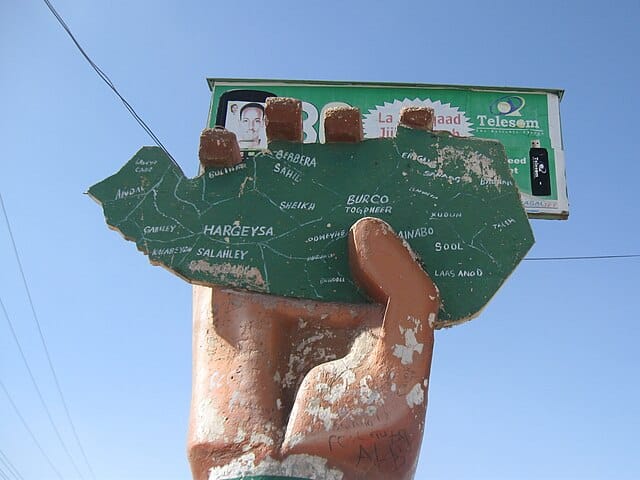How exactly are we supposed to protest Israeli war crimes?
Journalists shot, boycotts criminalised. How are we supposed to hold Israel accountable?

Below is an edited version of Vashti’s weekly newsletter, The Pickle. To get The Pickle in your inbox every Thursday, subscribe.
Yesterday morning, the world awoke to the news that veteran Al Jazeera journalist Shireen Abu Akleh had been shot and killed by Israeli snipers while covering an IDF raid in the West Bank city of Jenin.
As condemnations flooded social media, Israel’s government attempted to shift the blame for Abu Akleh’s death by circulating video misinformation claiming Palestinian responsibility. Mainstream Western media outlets dutifully echoed this state propaganda – or at least, failed to interrogate it. Meanwhile, the best theUS ambassador to Israel could come up with was a perfunctory call for a “thorough investigation” into the death of this American citizen murdered, as multiple eyewitnesses testified, in cold blood.
According to some estimates, Abu Akleh is the 55th journalist Israel has killed since 2000 – that number could have been far higher had the IDF’s bombing of a media tower in Gaza, which housed the offices of Al Jazeera and the Associated Press, been more deadly. These murderous tactics are just one arm of Israel’s multi-pronged strategy to eliminate scrutiny of the regime – another being the demonisation of the Boycott, Divestment and Sanctions movement.
Unfortunately, that strategy is rapidly gaining purchase in the UK, where just days ago Prince Charles announced the government’s intention to criminalise BDS among public bodies.
Hours after Abu Akleh’s killing, a former Israeli military official suggested on army radio that even if the IDF were to assassinate journalists, this would be justified, since journalists are “armed with cameras”. This sly reframing of non-violent methods of resistance – be that truthful reporting on Israeli apartheid, or economic boycotts of it – as violent is dangerous for our democracy.
As Eli Machover writes in this week’s Pickle, the anti-boycott legislation announced in the Queen’s Speech is part of a cluster of anti-democratic legislation being pushed through parliament, all of which is designed to strangle popular dissent. From Israel to the UK, democracy is being crushed in our names – and we can’t stand by any longer.
Aron Keller.
The Pickle is always looking for new contributors – we pay £120 per article. If you’re a writer, would-be writer or just a wealth of Jewish dating advice, drop us a line at pitch@vashtimedia.com.
The right to resist
by Eli Machover
Tuesday saw the state opening of Parliament and the delivery of the Queen’s Speech, which sets out the government’s legislative agenda for the year ahead. Tucked away amid plans for banning hunting trophies and reforming England’s planning system, was the re-announcement of measures to prevent the undermining of “community cohesion”.
Behind this seemingly anodyne statement lies one of the Tories’ most draconian plots to undermine peaceful protest and political resistance in the UK: the Boycotts, Divestment and Sanctions Bill.
This Boycott Bill follows a raft of recent legislation designed to drive a coach and horses through our civil liberties. Along with the Elections Act, which contains measures to deter young and poorer people from voting, and the Police, Crime, Sentencing and Courts Act – which bans noisy protests, and criminalises Gypsy, Roma, and Traveller communities – was written into the statute book in April. Last month also saw the passing of the Nationality and Borders Act, which gives the home secretary powers to strip dual citizens of their British citizenship without notice, and – in contravention of the UK’s international obligations – criminalises many of those seeking asylum, who now risk being shipped off to Rwanda thanks to Priti Patel’s cruel and dystopic scheme.
This Boycott Bill follows a raft of recent legislation designed to drive a coach and horses through our civil liberties.
Taking inspiration from similar laws introduced across American state legislatures, UK ministers are drawing up plans to stop public bodies from taking positions on international relations that diverge from those of the central government, effectively preventing boycotts against foreign countries. If enacted, it could have a devastating impact not just on its main target – Palestine advocacy – but also on climate activism, the arms trade, human rights activism and international solidarity with oppressed peoples struggling for justice everywhere.
Jenrick’s amendment
The Conservative’s pledge to bring forward legislation to ban public bodies from supporting BDS was originally set out in the party’s 2019 manifesto and later mentioned in the Queen’s Speech last year. However, the government decided not to bring forward the legislation then, for reasons that remain unclear. Nevertheless, part of the government’s anti-boycott agenda was passed in the last parliamentary session, thanks to the efforts of backbench Tory MP, Robert Jenrick, who has made the issue a personal crusade.
During his time as Secretary of State for Housing, Communities and Local Government – when he wasn’t flouting his own lockdown guidance, or saving a Conservative party donor as much as £50m by unlawfully approving a luxury housing development – Jenrick attempted to issue guidance to public service pension schemes to prevent them making investment decisions contrary to the UK’s foreign and defence policy. This was ruled unlawful by the Supreme Court in April 2020 after the Palestine Solidarity Campaign challenged the government with a judicial review.
However, since being sacked from his role last year, Jenrick has fought to overcome this ruling by changing the law itself. He did so by tabling an amendment to the Public Service Pensions and Judicial Offices Bill, when it was first debated in the House of Commons in January 2022.
This amendment was initially rejected by ministers on the grounds that the government would soon bring forth a comprehensive anti-boycott bill of its own. Yet when the Public Service Pensions Bill returned to the Commons in February, an impatient Jenrick seized the opportunity to re-table his amendment. This time it garnered more than 25 co-signatories, helped by lobbying from the Conservative Friends of Israel (CFI), whose efforts were so successful that they managed to sway three opposition members and leading lights of Labour Friends of Israel (LFI), CFI’s shadow organisation.
Despite co-signing Jenrick’s amendment, however, these three Labour MPs – Margaret Hodge, Steve McCabe and recent Labour convert Christian Wakeford – ended up not voting for it. Instead, it seems their objective was to pressure the Labour leadership into whipping its MPs to abstain – they succeeded. Just 22 Labour backbenchers chose to break the whip and vote against the amendment – a damning indictment of the state of the Parliamentary Labour party.
The … bill … equates peaceful Palestine advocacy with racist attacks against Jews in the UK. This baseless accusation isn’t new. Rather, it’s part of an ongoing effort to conflate criticism of Israel with antisemitism – and Zionism with Jewishness.
Although the government’s briefing notes make no explicit mention of the Palestinian-led BDS movement, the proposal has been justified on the grounds that it will bring about three “main benefits” – the first two are concerned with ensuring public bodies do not diverge from the UK’s foreign policy; the third, mentions “concerns” that boycott campaigns “may legitimise and drive antisemitism”.
The first benefit is troubling enough for anyone who considers disagreement and debate within and across public institutions to be a sign of a healthy democracy. Arguably even more offensive, however, is the second justification for the bill, which equates peaceful Palestine advocacy with racist attacks against Jews in the UK.
This baseless accusation isn’t new. Rather, it’s part of an ongoing effort to conflate criticism of Israel with antisemitism – and Zionism with Jewishness. In doing so, Johnson’s government is instrumentalising British Jews’ very real fears about the horrors of antisemitism to undermine both the struggle for a liberated Palestine and our basic civil liberties.
#JewsForDemocracy
It is crucial for those of us who believe in the democratic right to protest to make our voices heard – particularly progressive Jews concerned about climate justice and Palestinian liberation, as well as those who simply refuse to stand by as the Tories attempt to use us as a shield for its authoritarian agenda.
That’s why I’m proud to be part of a new campaign, set up to join a wider coalition of civil society groups resisting the bill. On Sunday we sought to make our opposition visible by unfurling an 18m banner across Westminster Bridge which read: “JEWS IN SOLIDARITY WITH PALESTINIANS: DEFEND DEMOCRACY! OPPOSE THE ANTI-BOYCOTT BILL!”.
Stuck as we are with an opposition whose default position is to abstain on the most abhorrent legislation, who agitate for the criminalisation of climate activism, and are in tow to the likes of Jenrick as they aid and abet the government’s smearing and silencing of Palestine advocacy, the onus is on us as Jews and progressives to take matters into our own hands.
Where our so-called political leaders lack the backbone or the will, we must take a principled stance and help build the groundswell of pressure from below to disrupt the co-option of our fears of antisemitism for authoritarian ends and halt the progress of the latest in a string of draconian measures brought forward by the Johnson administration.
Stuck as we are with an opposition whose default position is to abstain on the most abhorrent legislation … the onus is on us as Jews and progressives to take matters into our own hands.
As the shocking murder of Palestinian journalist Shireen Abu Akleh reminds us, Israel’s aggression becomes more egregious the fewer consequences it faces. Boycotts are one penalty that can keep Israeli impunity in check.
The right to non-violent resistance should be universally protected – but from London to Jerusalem, it is being shrunk before our eyes.
For those of us who won’t face a bullet to the head for demanding Israeli accountability, doing so for Palestinians is not a privilege – it’s a duty.

Eli Machover is a parliamentary researcher and PhD candidate in politics at the University of Oxford.
Author

Eli Machover is a PhD candidate in politics at the University of Oxford and an editor at Vashti.
Sign up for The Pickle and New, From Vashti.
Stay up to date with Vashti.



